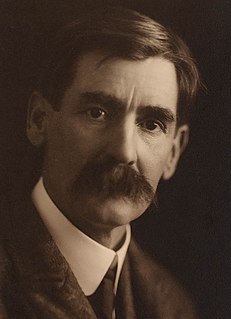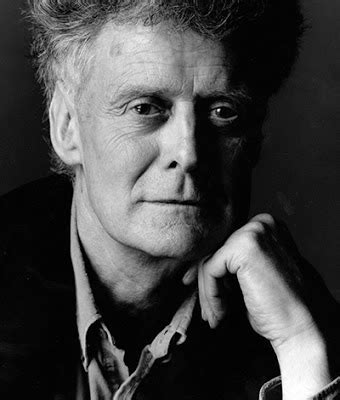A Quote by Henry Lawson
We shall never be understood or respected by the English until we carry our individuality to extremes, and by asserting our independence, become of sufficient consequence in their eyes to merit a closer study than they have hitherto accorded us.
Related Quotes
All of us , I believe , carry about in our heads places and landscapes we shall never forget because we have experienced such intensity of life there :places where, like the child that 'feels its life in every limb' in Wordsworth's poem'We are seven' ,our eyes have opened wider, and all our senses have somehow heightened.By way of returning the compliment , we accord these places that have given us such joy a special place in our memories and imaginations. They live on in us, wherever we may be, however far from them.
Anxieties about ourselves endure. If our proper study is indeed the study of humankind, then it has seemed-and still seems-to many that the study is dangerous. Perhaps we shall find out that we were not what we took ourselves to be. But if the historical development of science has indeed sometimes pricked our vanity, it has not plunged us into an abyss of immorality. Arguably, it has liberated us from misconceptions, and thereby aided us in our moral progress.
This is the test and triumph of originality, not to show us what has never been, and what we may therefore very easily never have dreamt of, but to point out to us what is before our eyes and under our feet, though we have had no suspicion of its existence, for want of sufficient strength of intuition, of determined grasp of mind to seize and retain it.
The only things in which we can be said to have any property are our actions. Our thoughts may be bad, yet produce no poison; they may be good, yet produce no fruit. Our riches may be taken away by misfortune, our reputation by malice, our spirits by calamity, our health by disease, our friends by death. But our actions must follow us beyond the grave; with respect to them alone, we cannot say that we shall carry nothing with us when we die, neither that we shall go naked out of the world.
For if we are observed in all matters, we are constantly under threat of correction, judgment, criticism, even plagiarism of our own uniqueness. We become children, fettered under watchful eyes, constantly fearful that-either now or in the uncertain future-patterns we leave behind will be brought back to implicate us, by whatever authority has now become focused upon our once-private and innocent acts. We lose our individuality, because everything we do is observable and recordable.
At the heart of all photography is an urge to express our deepest personal feelings - to reveal our inner, hidden selves, to unlock the artist. Those of us who become photographers are never satisfied with just looking at someone else's expression of something that is dear to us. We must produce our own images, instead of buying postcards and photo books. We seek to make our own statements of individuality.
I dread our own power, and our own ambition; I dread our being too much dreaded... We may say that we shall not abuse this astonishing, and hitherto unheard-of-power. But every other nation will think we shall abuse it. It is impossible but that, sooner or later, this state of things must produce a combination against us which may end in our ruin.
When indeed shall we learn that we are all related one to the other, that we are all members of one body? Until the spirit of love for our fellow people, regardless of race, color, or creed, shall fill the world, making real in our lives and our deeds the actuality of human brother- and sisterhood, until the great mass of the people shall be filled with the sense of responsibility for each other's welfare, social justice can never be attained.





































